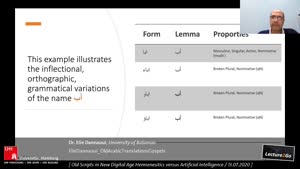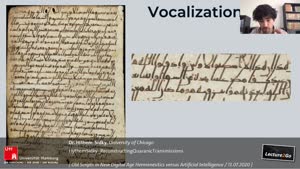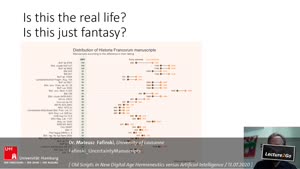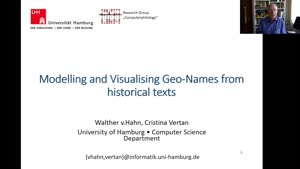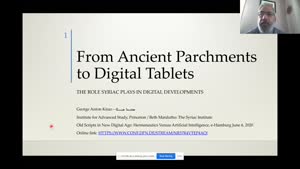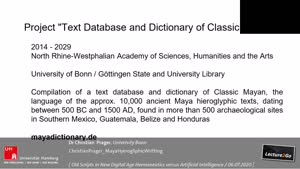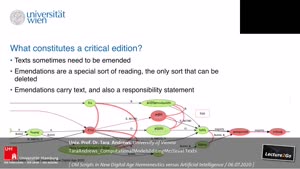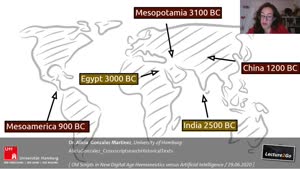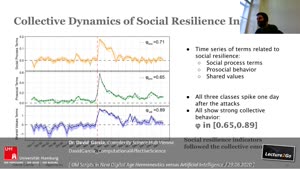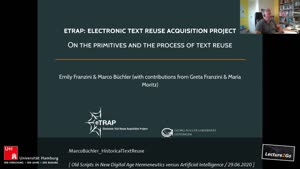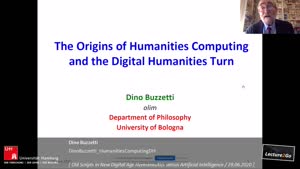VirginioCantoni_TechnlogicalInnovationAccessibility - Prof. Dr. Virginio Cantoni - Universität Hamburg
- Lecture2Go
- Videokatalog
- F.6 - Mathematik, Informatik, Naturwissenschaften
- Informatik
- Old Scripts in New Digital Age Hermeneutics versus Artificial Intelligence
Videokatalog
VirginioCantoni_TechnlogicalInnovationAccessibility
Virginio Cantoni, University of Pavia, „Technological innovation and visual artworks accessibility“
Since 2000, our group is involved in the development of multi-sensory solutions, combining different interaction methods to provide museums and exhibits visitors with more engaging experiences and to allow blind and partially sighted people to appreciate artworks. Different solutions have been experimented, one of the most successful has been with 3D printing of tactile images: it is a transfer of pictorial information to a specific image that can be scanned by fingertips. In the 3D printed reproduction, each part is encoded so that it can be easily detected and convey the original content in an intelligible way. Moreover, in 2019, has been proposed an international competition in the artistic heritage sector designed to provide virtual solutions that ultimately add to the fresco restorer’s toolkit. Specifically, the challenge relates to digital ways of reassembling fresco fragments collected, photographed and cataloged after a destructive event. This competition has been also designed to engage people with autism in composition tasks that encouraged their inclusion in productive activities and promoted their skills. The result of the competition has been really a surprise.
---
Einführungstext:
The digitalization campaign during the last years made available a big number of manuscripts, printed books, inscriptions, to a broad public. Most of them remain inaccessible for non-specialists for several reasons: the script cannot be deciphered, the language disappeared or its historical variants differ too much from the modern one, the semantics of the words changed or the conceptual space is completely different from ours. Computational methods and especially artificial intelligence offer powerful mechanisms to bring these rich cultural heritage assets into new light, made them transparent and more accessible for non-specialists and allow also more interdisciplinary collaboration. On the other hand, processing these documents implies often the rethinking and adaptation of established paradigms in the computer science and the embedding of principles of the ground method in humanities „hermeneutics”.
In this public lecture series, we invite internationally renowned scholars working in the cutting- edge domain of digital culture heritage to present current approaches of using computational methods on old scripts, show benefits, discuss the change of paradigm in humanistic interpretation and address also limitation of machines. The talk will address a broad spectrum of scripts and languages among them Arabic, classical Ethiopic, Coptic, Latin, classical Greek, old German.
The series of lectures is supported by the Project HerCoRe (https://www.inf.uni-hamburg.de/inst/dmp/hercore/projects.html) financed by the Volkswagen Foundation and the ERC Project COHBUNI (https://www.cobhuni.uni-hamburg.de/project.html)
Organisers: Dr. Cristina Vertan, Prof. i.R. Dr. Walther v. Hahn (MIN, Dept. Informatik), Dr. Alicia Gonzalez Martinez (AAI, Facultät für Geisteswissenschaften)

